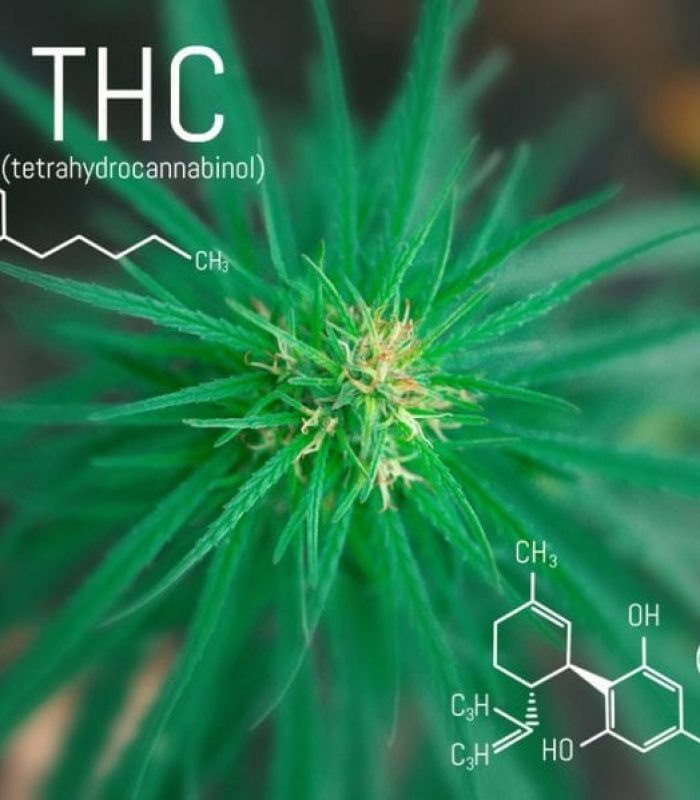The meaning of the ‘Entourage Effect’ may not be what we think it is.
Studies that only look at isolated parts of the cannabis plant, like THC or CBD, often produce conflicting results. One week, a study may come out with results that claim THC works wonders for controlling pain. The next week, another study comes by that says THC’s pain-killing effects are actually a placebo. But, anecdotally, the plant appears to treat a myriad of conditions and their symptoms. So what’s the meaning of the entourage effect?
To explain these research disparities, Dr. Ethan Russo, a neurologist, proposed “the Entourage Effect”. The concept was later popularized by Israeli biomedical chemist Raphael Mechoulam.
The meaning of the Entourage Effect, essentially, is that the cannabis plant’s components – cannabinoids, terpenes, flavonoids, etc. – work together on multiple receptor, cellular, tissue, and organ systems. But, they work differently together than they do individually. And because every chemovar, or strain, of cannabis is different, individual plants may produce wildly different effects on different people. In other words, THC alone may not treat pain but in combination with other compounds, it works wonders.
Cannabis advocates often rely on the Entourage Effect to explain how cannabis may treat patients when the research hasn’t quite caught up to the claims. But because the plant contains thousands of chemicals, it’s entirely possible that individual components could harm the body just as others heal it.

Case in Point: CBG Blocks Serotonin
One example of a potentially detrimental cannabinoid is cannabigerol, or CBG.
CBG is a prominent cannabinoid in cannabis, along with THC and CBD. In fact, CBG is a precursor to THC and CBD. In other words, enzymes transform CBG into the other cannabinoids.
Prof of Pot, a cannabis blog run by an anonymous pharmacologist, went over CBG’s less-desirable effects in detail. For one, CBG blocks serotonin receptors. Serotonin, a neurotransmitter, regulates mood, appetite, and sleep. Its receptors are primarily found in the gut (not the brain, contrary to popular belief). And regulation of this neurotransmitter may be particularly important if you struggle with depression, nausea, or vomiting.
Certain drugs, such as ondansetron and dolasetron, can manage nausea by blocking serotonin receptors. CBD also appears to control nausea and vomiting – in small doses – by a pathway related to the serotonin network, although exactly ‘how’ is still being worked out.
But, CBG appears to counteract CBD’s ability to curb nausea, meaning too much could make certain cannabis products or plants useless when trying to calm the digestive system.
As noted above, CBD can reduce nausea when administered in small amounts. However, one rodent study found that high doses of CBD could actually make vomiting worse.

Whole Plant or Go Home
So, have cannabis businesses, activists, and scientists been lying to us the whole time about cannabis’s therapeutic promises and the true entourage meaning?
No. Of course not.
What it does mean is that researchers are still investigating the nuances related to cannabis as a medicinal treatment. We also don’t yet know the long-term effects of isolates or ultra-concentrated extracts.
CBD isolates or other products infused solely or primarily with CBD have been known to trigger side effects. According to the FDA warning label for Epidiolex – a pharmaceutical made of relatively pure CBD extracted from cannabis plants – malaise, renal failure, and suicidal thoughts are potential side effects from too much of that CBD chemical.
Other Effects
Other cannabinoids may produce effects which the consumer would consider bad depending on their intended effect. For example, plants that contain THCV can suppress appetite, which isn’t ideal for cancer patients, AIDS patients, or those with eating disorders. Other strains have lower amounts of this chemical, and therefore would stimulate appetite.
It’s also possible that consuming some cannabis plants that naturally produce high amounts of CBD or CBG could exacerbate certain symptoms rather than relieve them. One example of this is the fact that some people find it harder to sleep once they consume high quantities of CBD.
Regardless, most cannabis plants don’t seem to trigger the same issues that CBG or CBD do when these are on their own. Until science better understands the plant and our endocannabinoid systems, be wary of any miraculous entourage claims. It’s the buzz word du jour, but we aren’t even half way to knowing what it even means.





